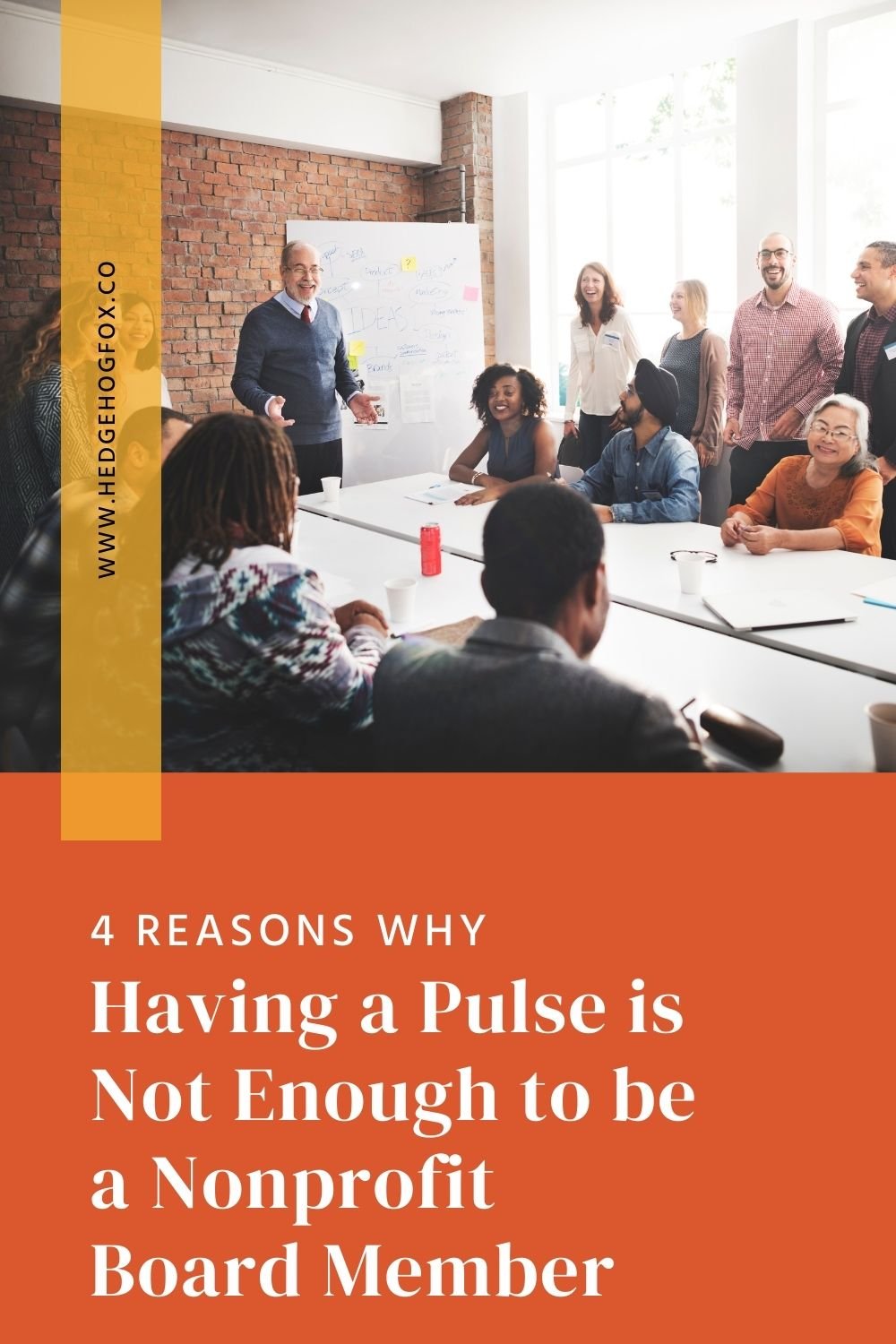Why Having a Pulse is Not Enough to Be a Nonprofit Board Member
I just checked, and my pulse is 60 bpm.
Unfortunately, that (alone) does not qualify me to be a board member.
And yet…that's the running joke in the nonprofit sector, right?
That any time we're frantically searching for a new board member, or two, we cozy up with our contact list and ask, “Let's see…who do I know who has a pulse?”
It does not have to be this way.
It should not be this way.
You owe it to yourself, your organization, and the community you serve to recruit the best darn board members you can find.
I so often see organizations sell themselves short at the outset of their recruitment process, and end up settling for board members who prove to be dispassionate, disengaged, or otherwise dissatisfying.
I don't want that for you. And I know you don't want that either.
Instead, I invite you to dream big about whom you can recruit to join your board, no matter the size of your organization.
And here's why...
Board members are your organization's ambassadors. They’re sharing stories about the impact of the work you do. They’re leveraging their networks to help you find the time, talent, and treasure your organization needs. They’re cultivating relationships with your best donors, volunteers, and community partners. If a board member is lukewarm about your mission, or is afraid to ask others to learn more and do more for your organization, then they will not effectively fulfill their role as ambassador.
Board members are your Executive Director's most trusted advisors. They bring their knowledge, experience, skills, background, and attributes to bear on the work of the organization. They can support your Executive Director in solving problems, overcoming challenges, and identifying opportunities. Your organization will best serve its community if its work is informed not only by the Executive Director, but by the diversity of perspectives represented on your board.
Board members play a role in staff retention. Your Executive Director sends an email to your board asking for their input or announcing a significant gift. Crickets. Your Development Director attends a board meeting and asks for volunteers to assist with lapsed donor re-engagement. No one raises a hand. A board member directly approaches the staff with a long list of tasks or requests. A board member provides destructive criticism of the Executive Director, to their face, in the presence of the rest of the board. If your staff members perceive that the board does not care about their work, micromanages their work, or does not respect their work, they will leave. And then you will be looking for much more than a few new board members.
Board members can help or hinder the future of your organization. They collaborate with your Executive Director and other staff members to set strategic directions, often in 3-5 year intervals. But is not uncommon for board members to get stuck in the weeds or to dwell in the past because there is great comfort in dealing with the known rather than the unknown. You need board members who don't mind this discomfort, and are adept at creative and strategic thinking.
See what I mean? Board members are so much more than warm bodies to achieve a quorum. They have a tremendous influence on the stability and impact of your organization. As you begin thinking about your upcoming board recruitment cycle, I hope you remember that your organization deserves board members who bring more than their pulse to the table. They must also bring their head and their heart.
What am I missing? Can you think of other reasons why organizations should "dream big" when it comes to board recruitment? Share in the comments below. Your questions are welcome, too!




